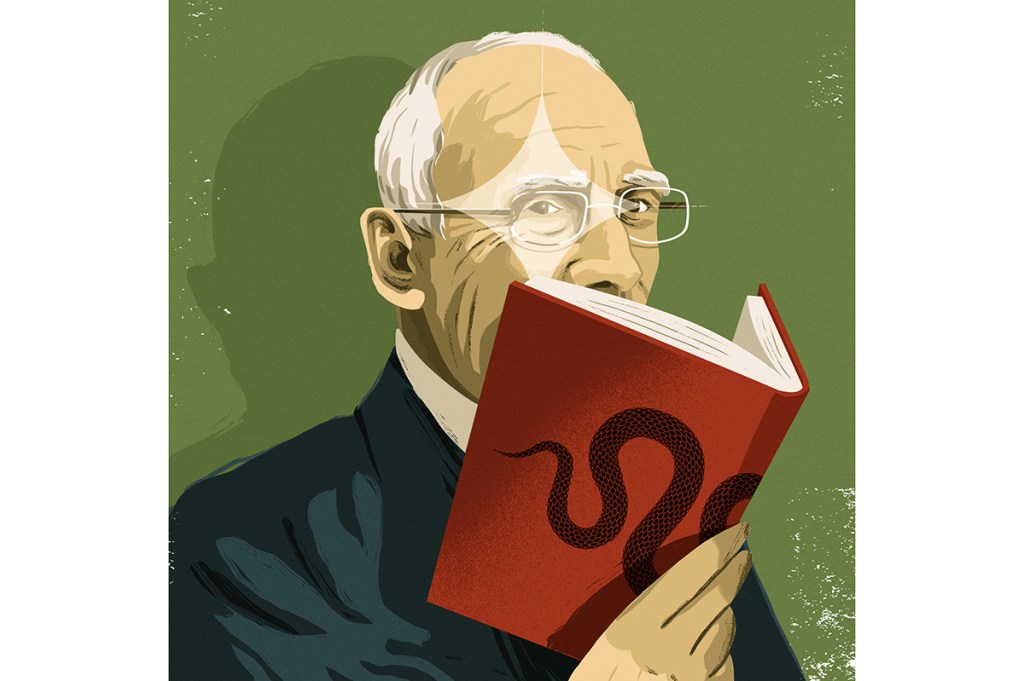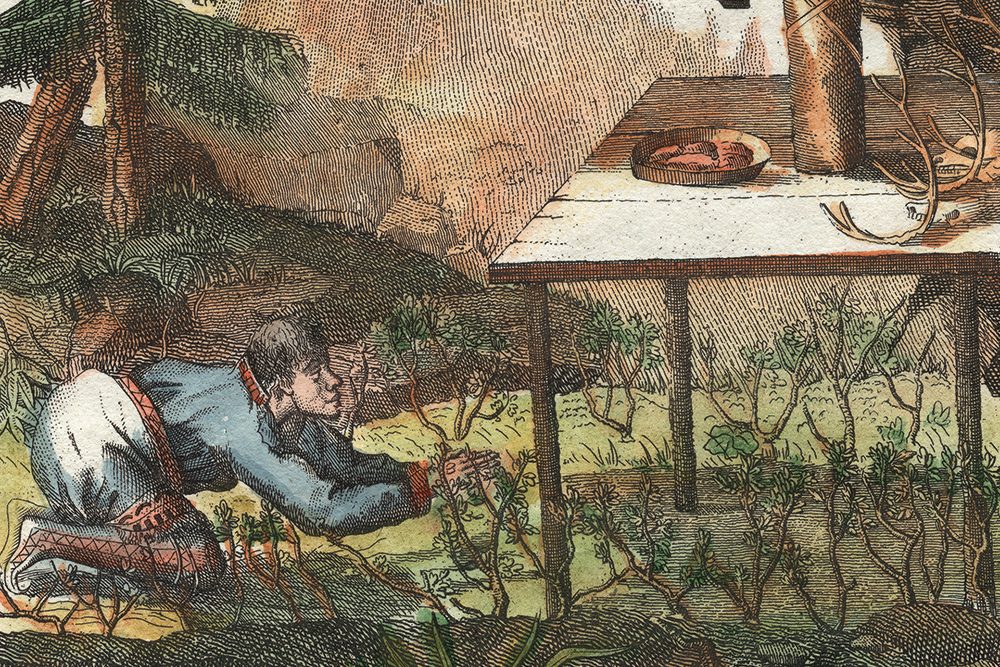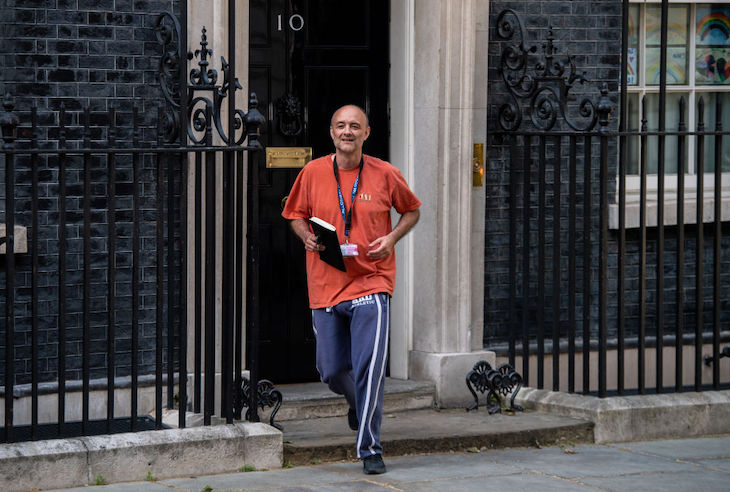One of the most revealing moments in Sunday Best — a collection of book reviews dating back to the late 1980s — comes when John Carey, invited to appraise some items about Robert Graves, remembers hobnobbing with the author of I, Claudius half a century ago in Oxford’s High Street. Instantly, two of Carey’s signature marks — his love of literature and his eye for personality — come crashing together. Graves, then in his late seventies, tall, craggy and mage-like, is still a “commanding sight.” The drawback is his conversation: from the great poet’s lips, “in disconcertingly loud, upper-class tones, issued a bizarre stream of superstition and bogus history.” Tempering his admiration for a moment, Carey settles down to the arduous task of reconciling the “old-fashioned, chivalrous Englishman” and the barking warlock.
Quite a lot of Carey, you suspect, is gathered up in this encounter: the relish of human quiddity; the class-consciousness; the sometimes-bewildering confluence of respect, amusement and, when the social or intellectual chips are down, outright contempt. How to conceptualize this one-time Oxford English professor and long-term ornament of the Sunday Times of London books section for an American audience? If he isn’t quite the boy from the Bronx tearing unrestrainedly along Park Avenue, then he is certainly the (figurative) son of the upwardly mobile Hackensack store owner, whisked into some Ivy League college on the strength of his intellectual pizzazz, thoroughly disgusted by the varieties of privilege and exclusion he finds inside and determined to see their statues overthrown.
Carey (born 1934), you see, was a middle-class boy from suburban southwest London who, after a dazzling undergraduate career, found himself teaching at Christ Church, Oxford’s snootiest institution, where the far from ground-down college servants positively exulted in the number of fur coats for which they were obliged to find cloakroom space at undergraduate parties. Not only did the memory of this apprenticeship never leave him — one highlight was a college dinner in which one grand eminence, asked by another who the young man opposite might be replied “Oh, he’s no one” — but it naturally began to inform his critical stance.
On the one hand, he abhors pretension, wealth, giving yourself airs and, by extension, modernism and abstract art, if only because their underlying aim seems to him to rest on excluding ordinary people from joining in. On the other, he is keen on meritocrats, the reward of honest labor and the separation of sheep from goats, meaning that Marie Stubbs, the inner-London headmistress brought to impart some hope to her disadvantaged charges, has him clambering to his feet to cheer her on and urge that her detractors should be “put in the stocks and pelted with school dinners and poster paint.”
Clearly, a stance of this kind is going to involve whipping-boys. The social maneuverings of a writer like Sir John Betjeman have him gnashing his teeth within a couple of sentences, the erstwhile British Poet Laureate emerging from Bevis Hillier’s biography as “exploitative, querulous, calculating and deceitful, his worship of wealth and rank sitting oddly with his earnest profession of Christianity.” Given a book about the decline of the English country house to review, Carey is practically ecstatic (“the photo reproduced here of huge stone and brick excrescences plonked down on the innocent landscape strongly suggest that destruction was the best thing”) and quotes Pope’s description of them as “huge heaps of littleness,” monuments to their owners’ pomp and vanity.
This is bracing stuff — the tone of Carey’s more combative reviews bears approximately the same relation to most modern literary journalism as Metallica does to the Backstreet Boys — and yet there are times when the pursuit of elites and enclosures runs into trouble. Most class distinctions turn out to be relative in the end, and the Betjeman whom Carey marks down as an unreflecting snob was himself a victim of snobbery at the hands of boys who had attended even grander schools than his own. It is the same with Thackeray, the subject of Carey’s groundbreaking study Prodigal Genius (1977) — upper-class, maybe, when set against Carey’s great hero Charles Dickens, but looked down upon by some of his critics as an upstart penny-a-liner whose presence in aristocratic drawing-rooms early Victorian society could have done without.
What gives Sunday Best its abundant charm is Carey’s sheer curiosity. Like the Virginia Woolf of The Common Reader, watching Madame Rosalba retrieving soup plates from the sea off Brighton beach, his abiding message would seem to be that: it is because of this that he loves his kind. Cannibalism, nudism, worrying, the aging process, illness, laughter — Carey is fascinated by them all, teases out their importance, or lack of same, nearly always manages to emerge a thousand words later with the reader on his side and quite often pulls off the welcome trick of extending sympathy when the reader expects him to head in for the kill.
Finishing a memoir of a rural English family devoted to hunting and shooting, he detects the existence of an oppressed minority: “The kind of life it depicts has attracted the passionate loathing of the anti-hunters and their mob following, and is now illegal, which makes it more important to learn what it was really like to live it.” Meanwhile, the road behind lies strewn with aphoristic judgments: “Apart from the death of a pet hedgehog, nothing occurred in his formative years to justify the universal pessimism he later specialized in” he writes of Samuel Beckett. As for R.S. Thomas, a fervent Welsh nationalist who combined verse-writing with a passion for ornithology, “he would have been happier, you feel, in a world of birds, provided they sang Welsh.”
In his preface to Sunday Best, Carey makes brief mention of a previous collection, Original Copy (1986), whose “constant point-scoring” he now claims to regret. It has to be said that the current assemblage is a touch more emollient than its sometimes-scarifying predecessor, yet anyone who imagines that Carey has lost his touch should read the 2005 review of Tom Maschler’s Publisher. Having convicted its distinguished author of vanity, conceit and a terrible style, Carey notes the “warmth and deep affection” he contrived to stir in such writers as Roald Dahl and Kurt Vonnegut. Then comes the coup de grâce: “The only surprise is that, with so many friends in the literary world, none of them persuaded him not to publish this book.”
If Maschler is arraigned for the elemental sin of getting above yourself and — worse — boring the reader, then a review of Alan Macfarlane’s Letters to Lily on How the World Works, also from 2005, sets Carey’s middle-class, materialist antennae a-tingle. For another thing he believes in is the essential rightness of the Western project: cultural relativism is a fool’s game, he implies, as it involves a misplaced and mostly undeserving sympathy. A barbarian is a barbarian, whatever the cultural influences that formed him. Macfarlane is a Cambridge anthropology professor, and the “letters” dispatched to his seven-year-old granddaughter begin with a brisk survey of her advantages when compared to some of the children of non-Western cultures, who at her age would be “slaving in the fields” and dying from pestilence.
What worries Carey is that “her grandpa believes these other cultures, with their horrible injustices and cruelties, are just as good as her own Western culture.” Anthropological training, it appears, has convinced him that all human arrangements are “equally valid” and that none is intrinsically morally better than another. Once again, Carey is as interested (and, you infer, appalled) in the man as in his argument. He notes that Macfarlane’s “pride in being a fellow of King’s College, Cambridge, and walking on the lawns, from which the common people are debarred, is patent even to readers of this book” and suggests that the advice given to Lily to visit his website “does not suggest a shrunken ego.”
Professor Carey’s ego, alternatively, is kept mostly under wraps. The walk-on with Graves excepted, there is very little about himself: the books seem much more important. And so the really striking feature of this file of judgments, however hostile or unsparing, is the one weapon in the critical armory that seems to be missing from them: malice.
This article was originally published in The Spectator’s November 2022 World edition.

























